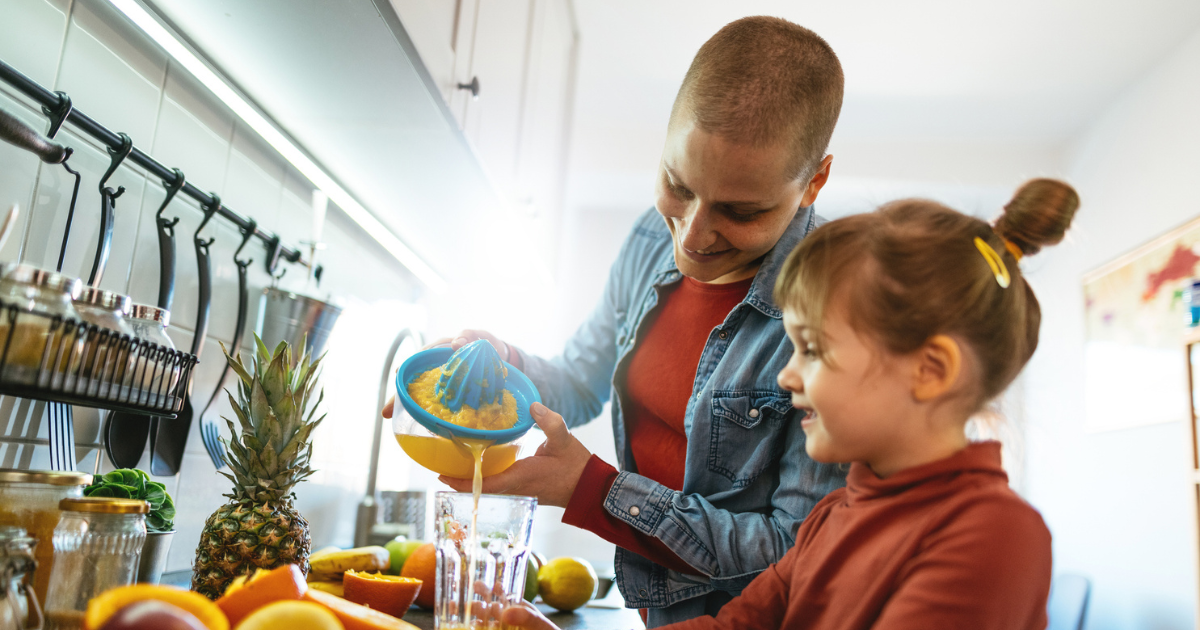Worries about weight and cancer

Concerns about weight loss
The National Cancer Institute states the most common side effects that impact your weight during cancer treatment are loss of appetite, mouth sores, nausea and vomiting and fatigue. It’s important to try and manage these potential side effects to help you maintain a healthy weight and stay strong through your cancer journey.
Nutrient-dense foods that are high in protein are always a good choice. Some examples of these nutrient-dense foods include:
- Lean meats
- Eggs
- Greek yogurt
- Legumes
- Quinoa
Managing side effects
Here are some tips to help you manage some of the most common side effects of cancer treatment that impact your appetite and weight:
- Nothing sounds good – stay hydrated with beverages you can tolerate. Protein waters may be a way to get extra nutrition if nothing to eat sounds good.
- Loss of appetite – eat small amounts, including some protein, at each snack. It may help to set a timer to try and eat something small every couple of hours. Ask your physician about medication for your appetite.
- Mouth sores – try honey or medicated mouthwash to coat your mouth before eating, or try to eat softer foods.
- Nausea/vomiting – eat small meals often, eat something before getting up for the day and try eating bland foods.
- Fatigue – have grab-and-go protein-rich snacks that need little preparation (cheese stick, yogurt, tuna/chicken packet, peanut butter and banana), or try to go for a short walk before eating.
Concerns about weight gain
Some cancer treatments can cause weight gain. The American Cancer Society finds this weight gain is most common in breast, prostate and ovarian cancer patients. Several factors can cause weight gain in such patients, including:
- Side effects from chemotherapy
- Medications
- Hormone therapy
For some patients, nausea can improve when you eat food, and snacking throughout the day on calorie-dense foods may cause weight gain. Similarly, hormone-suppressing therapy can increase fat tissue and decrease muscle mass, which makes it more difficult to burn calories.
To limit weight gain, eating mindfully is critical. Eating a diet rich in fruits and vegetables with adequate protein and unsaturated fats is beneficial. Pairing each meal or snack with protein and unsaturated fat can help keep you full for longer. Some protein-rich, healthy snack ideas are whole wheat crackers with cheese and dried fruit or Greek yogurt with berries and granola or nuts on top.
Weight and survivorship
The American Institute for Cancer Research (AICR) recommends maintaining a healthy weight and following physical activity guidelines for Americans. Physical activity can help you regain the muscle mass you may have lost during treatment. Additionally, physical activity can be beneficial as excess weight is a known risk factor for cancer development and recurrence.
Working with your health care team to manage your weight during cancer treatment is essential. Working with a registered dietitian can help you maintain proper nutrition throughout your cancer diagnosis.






